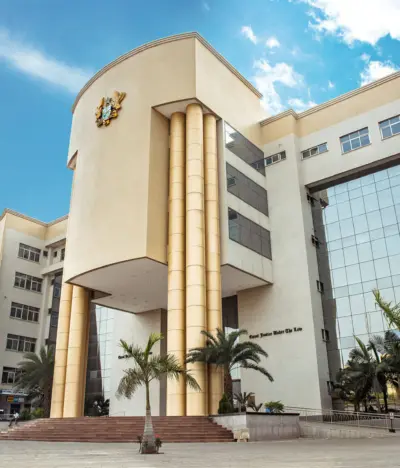The legal system, designed to guide and protect citizens, can sometimes feel like an enigmatic puzzle, especially for those unfamiliar with its intricacies. This highlights the paramount duty of lawyers in Ghana: to not only represent their clients but also to shed light on the labyrinth of legalities that the public grapples with.
The challenge of illiteracy is substantial in Ghana. According to UNESCO, a significant percentage of the adult population is yet to be equipped with the fundamental skills of reading and writing. This lack of literacy has cascading implications, especially when Ghanaians try to navigate the often-turbulent waters of legal matters. Misunderstandings can arise, rights can be inadvertently waived, and processes can become unduly protracted—all because of the veil of obscurity that illiteracy casts.
Legal areas that hold profound implications for the citizenry:
- Wills: A will is not merely a document; it’s a testament to one’s life, wishes, and the legacy they wish to leave behind. Yet, the legalities surrounding wills can be intricate. Without proper guidance, individuals might find themselves drafting ambiguous wills or ones that do not truly reflect their intent. Lawyers have a pivotal role to play in elucidating the nuances, ensuring that one’s last wishes stand as a beacon of clarity rather than a source of contention.
- Divorce Processes: Marriage, in many respects, is a union sanctified by both love and law. However, when the ties of matrimony dissolve, the ensuing legal journey can be treacherous for the uninitiated. With matters of alimony, child custody, and asset distribution at play, a clear understanding becomes indispensable. Lawyers are the navigators in this journey, illuminating the path and ensuring that rights and responsibilities are distinctly understood.
- Land Acquisition: Land, in Ghana, is not just an asset—it’s an heirloom, a piece of heritage. The process of acquiring or transferring land is mired in layers of legal processes, indigenous customs, and bureaucratic red tape. Here, more than anywhere, the guidance of a learned lawyer is not just beneficial—it’s essential.
- Chieftaincy Issues: Chieftaincy in Ghana is a profound blend of cultural reverence and administrative responsibility. Disputes, lineage verification, and the proper conferment of titles often require legal insight to navigate. Lawyers aid in demystifying these processes, ensuring that the rich traditions of chieftaincy are upheld in harmony with legal frameworks.
- Customary Law within the Legal System: Customary law, deeply rooted in Ghana’s indigenous traditions, holds significant sway in the legal landscape. But how does it interface with formal statutes? How are conflicts between customary and statutory laws resolved? Lawyers play a pivotal role in elucidating this balance, ensuring the spirit of Ghana’s traditions is seamlessly woven into its legal fabric.
The broader picture, however, is even more profound. When lawyers step up to the mantle of educators, they don’t just serve their immediate clients; they uplift society. An informed public, after all, is an empowered one. By dispelling legal ambiguities, lawyers play a pivotal role in fostering a society where justice isn’t just a lofty ideal but an accessible reality.
In conclusion, as Ghana strides forth in its journey of growth and development, it’s imperative for its legal luminaries to hold aloft the torch of legal education. For in the glow of this torch, lies the promise of a society where law is not an enigma but an ally, guiding every Ghanaian towards justice, rights, and empowerment.







